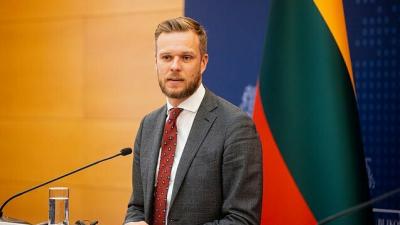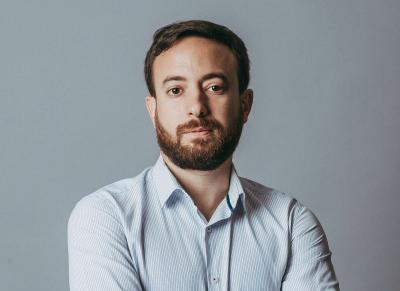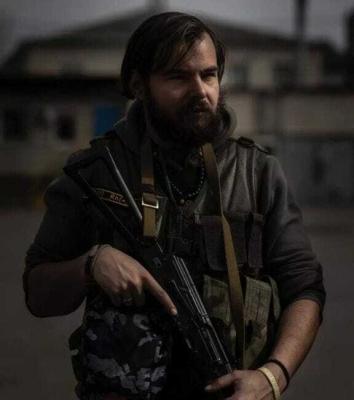“We can only achieve true peace from a position of strength”: An Interview with Gabrielius Landsbergis
Gabrielius Landsbergis holds a bachelor’s degree in history from Vilnius University and a master’s degree in international relations from the Institute of International Relations and Political Science at Vilnius University. He was a member of the European Parliament for the Homeland Union - Lithuanian Christian Democrats (European People’s Party) between 2014 and 2016, and was a member of the Committee on International Trade and the Subcommittee on Security and Defense. Since 2015 he became Chairman of the party and in November 2016 he was elected deputy for the Lithuanian parliament (Seimas). From December 2020 to November 2024, he served as Minister of Foreign Affairs of Lithuania. After the October 2024 elections, in which the Homeland Union came second, Landsbergis resigned as Chairman and refused a seat on the Seimas proportional list due to the party’s poor election results.
Álvaro Peñas: After almost three years of war, Europe is still unprepared to deal with a conflict like the one in Ukraine. Is this a problem of lack of vision or political will?
Gabrielius Landsbergis: The underlying problem is that we are now satisfied that many countries spend 2% on defense, but when there is a war, we find that nine European countries still do not reach that 2%. It is true that some have committed themselves to it, but this gives us an idea of how the current situation is being handled. When I have dealt with politicians from other countries, I have asked them what the problem is, because in Lithuania we spend 3.5% and Poland 4.5%, and the answer they have given me is that it is very difficult to convince the population that this spending is necessary. I think this is the basis of the problem, we do not have a dialog with our people to explain to them the problem we are facing. We may not want to alarm people, so we tell them that the situation is not so bad and that it is contained in Ukraine and therefore there is no need to spend this money, but this is where the mistake begins. When we suffered from COVID, a consensus was reached and it was decided that it was necessary to spend a lot of money to reverse the situation, but with Ukraine this has not been done. And until we do, it’s going to be very difficult for this to change.
Perhaps the problem is that the cost of a Ukrainian defeat in the war is not being explained to the Europeans?
Of course, you have to be honest about what is at stake and speak clearly about the money you are spending. It is complicated to talk about the money to be spent by others, but I will give you an example: in COVID we spent 750 billion euros in a European common fund, of which 160 billion went to Italy for its economic recovery, but if we calculate how much money was sent to Ukraine, we have about five billion. It is a very small fraction and that is the problem.
However, many Europeans believe that the expenditure is much higher, partly because of Russian propaganda and because some politicians are sending this message for electoral purposes. Again, because we are not speaking clearly to the population.
Yes, absolutely. Russia is actively using narratives against us, and it is the problem when we talk about energy or food, and it’s becoming more and more obvious. It shows that we have been too comfortable with the geopolitical situation, because this war did not start in 2022, it started in 2014, and we had eight years to prepare before the invasion and almost three since it started, and we still lack the urgency to do it.
The arrival of Donald Trump as US president in January, and his intention to end the war, has promoted the narrative of a ceasefire and new Minsk agreements. What do you think about this possibility?
It is very important to remember what the Minsk agreements were and that they were used as a tool to push Ukraine into an unconditional ceasefire. First of all, these agreements resulted in no more weapons being produced or delivered to Ukraine, despite what Angela Merkel says in her book, and this did not change until 2019, when Trump decided to send the Javelin. Second, there were no security guarantees, meaning that if anything happened, they would have to defend themselves. Third, we cut off Ukraine’s Achilles heel because there were no promises of European integration and because Moscow-controlled regions would have veto power over anything Kyiv did; basically, Ukraine would not be able to make decisions without Putin’s permission.
The Minsk agreements left Ukraine in a terrible situation, in a very weak position and at the expense of being attacked again. If we do not realize now that these parameters need to be changed, the situation will not change and it will be an enormous mistake. Ukraine needs to have weapons, it needs to be strong, it needs security guarantees, and it needs a very clear political promise of integration into the European Union, because that will bring the necessary investment to rebuild the country. Otherwise, no matter if a ceasefire is signed, the war will be back the next day.
Russia does not seem to be open to dialogue. Recently, its foreign minister, Sergei Lavrov, called for NATO to withdraw to its 1997 borders, which is a clear threat to the Baltic states.
Exactly. He demanded it before the war, because the stronger Russia feels, the greater its demands are. In 2014 their demands were for Ukraine, now they already have demands for Lithuania, and in the future they will have them for Poland. If we are unable to defend Ukraine, what will they demand? Ukraine is really fighting for all of us, and that is how I see the situation.
You recently wrote about how the Star Wars project caused the economic collapse of the Soviet Union, is it possible to draw a parallel with the current situation?
I used that example because I think it’s very useful for us to remember. One of the ways in which the West won the Cold War was by promising to fight a very long war, i.e. there was no talk of one year to the next, but the promise was to fight as long as necessary and at the same time to increase spending. In Putin’s case, if we were able to make a firm promise to support Ukraine and be willing to spend money and create new weapons programs, we would break all his calculations. Imagine if, instead of forecasting until next January, we had a program until 2040, it would be a real problem for Putin to maintain the cost of the war when we see that he has increasing economic problems. I’m oversimplifying, but that’s how it works. Reagan made it very clear: “We’ll do whatever it takes,” and if you’re willing to spend more money because you have it, and you have the technological and innovative superiority, then you can win this war as was done in the 1980s.
You also make the comparison with the thirties of the last century.
Absolutely. In 1938, Hitler made his demands through the use of force and intimidation, we are now living through the same situation and I don’t understand how many people can tell themselves that the situation we’re experiencing with Russia in Ukraine is different. Unfortunately, it is not.
What do you think about Donald Trump’s idea of “peace through strength” and the possibility of increasing military spending to 3%?
President Trump’s initial demand was to reach 5%, but it was a starting point for negotiations with several countries. From my point of view, I think the idea is reasonable in the current situation and that to increase military assistance and security guarantees to Ukraine we need to be around 3-4% defense spending. In order to have peace, a good investment in defense is necessary.
Now we see that the United States, before the change of administration, is sending a lot of war material to Ukraine, material that it had promised to send, but it was very much delayed. Nevertheless, their delivery is very good news. We can only achieve true peace from a position of strength. If we were able to tell Putin that what he sees now is going to be his new reality, that would be a good strategy.
Read also
Manuel Veiga Aldemira: "Technology gives a second life to many Ukrainians, some soldiers have even returned to the front"
Manuel Veiga Aldemira: I have been involved in supporting Ukraine since February last year, from the very beginning of the invasion.
Álvaro Peñas
Francisco Floro: 'Basically, this invasion is about the reconstruction of the former Soviet space'.
Interview with Francisco Floro, Spanish volunteer in Ukraine.
Álvaro Peñas
“There is much more that unites Spain and Hispanic America than what differentiates us”: An Interview with Manuel Fuentes Márquez
In the television programme El mejor de la historia, broadcast by La 1 of Radiotelevisión Española, Hernán Cortés is described by one of the participants as an “animal” and an “impressive murderer”. The black legend is widespread in Spain, and Hernán Cortés, like other conquistadors, is portrayed in a very negative light. To discuss his historical relevance and the many myths that surround him, I spoke to Manuel Fuentes Márquez, a historian, researcher, and author of the Spanish history website Libros y Lanzas.














Comments (0)